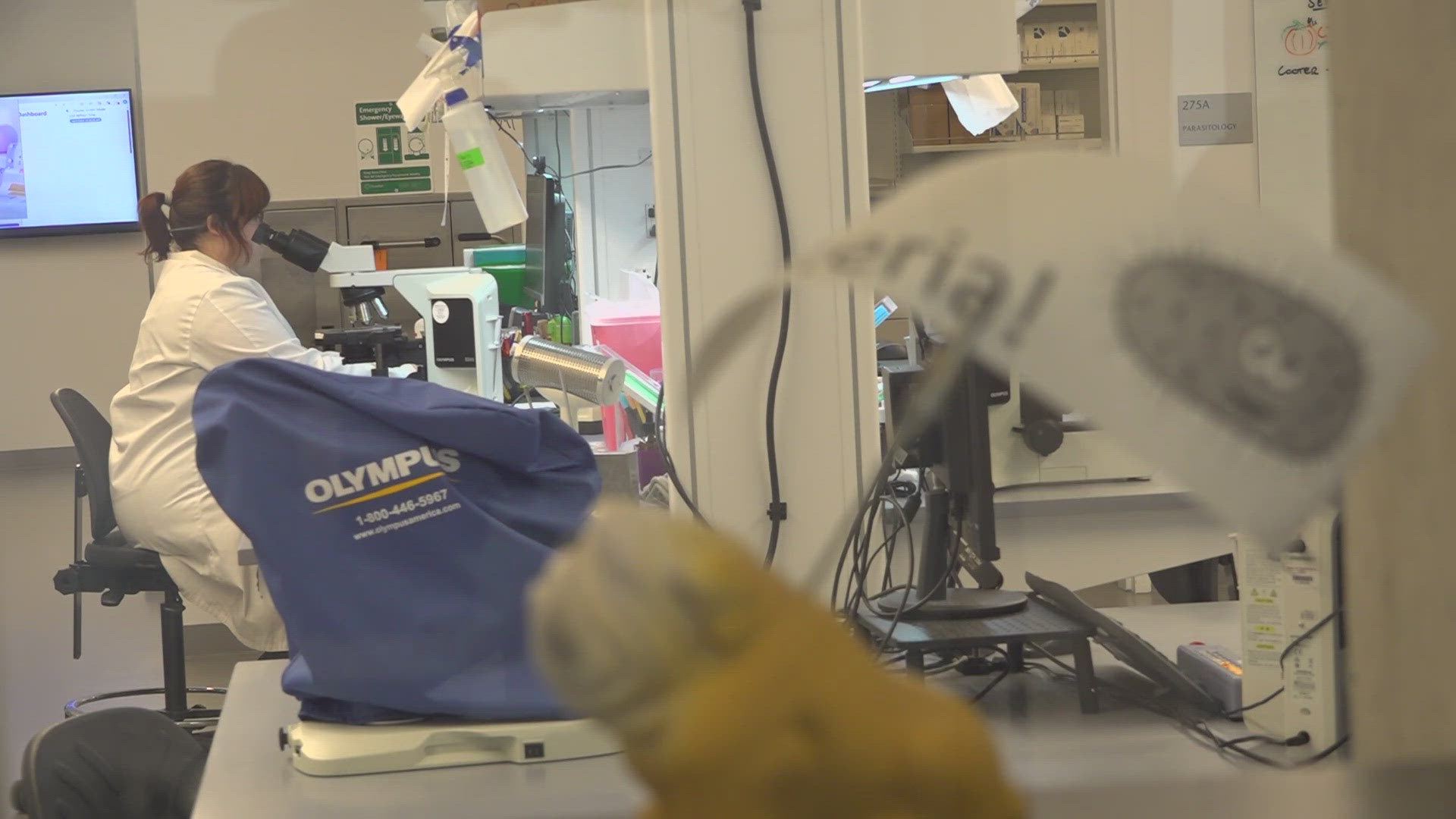PULLMAN, Wash. — Earlier this year, Washington State University's Animal Disease Diagnostic Lab (WADDL) confirmed the state's first case of chronic wasting disease, then a rare case of plague in an Idaho deer.
You could say WSU's animal disease diagnostic lab's unofficial tagline is "We worry so you don't have to."
At least that's how Executive Director Kevin Snekvik thinks of it. "I think it trickles down to every person in the Inland Northwest because it affects not just the person sitting at home with their dog but also the food sitting in their refrigerator," Snekvik said.
The inner workings of the building are highly secure, but KREM 2 got a sneak peek through the glass where staff and students test around 250,000 animal samples every year, more than 20,000 a month from around the country.
"Part of those 20,000 cases that come in, they all basically start at this table here," Snekvik said.
Behind the double doors in the biosecurity Level 1 area is the highly sealed-off Level 2 laboratories.
The area is so separate, that it's on an entirely different air-circulation system.
WADDL's work began 50 years ago, and now, its scientists are at the forefront of alerting local, state and even federal agencies about animal disease and potential outbreaks.
The lab also works with a network of animal labs to detect and track diseases nationwide.
WADDL helped pinpoint Idaho's first case and warned of the broad impacts on the nation's food supply by learning how the disease went from Texas to the Northwest.
WADDL is the go-to for many state and federal agencies that don't have their own accredited labs.
The lab is also training the next set of veterinarians, pathologists and biologists to protect people and animals for decades to come.
"What I feel is, one of our biggest contributions is actually we get to keep this going for the next generation, have people well-trained to man it," Snekvik said. "Really the key part of it is the fact we can play a huge role at so many different levels. That's the part [where] I walk home at night and feel like I've done something important."

